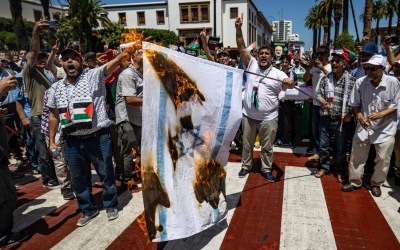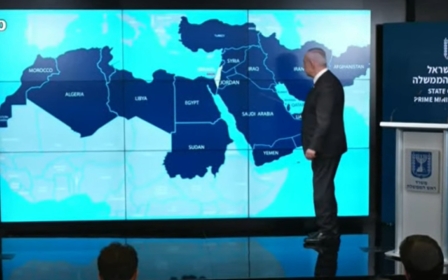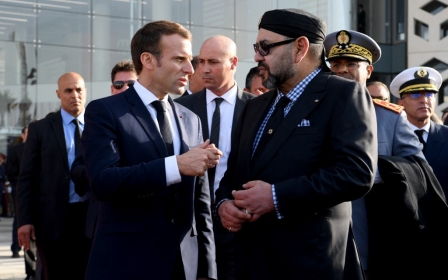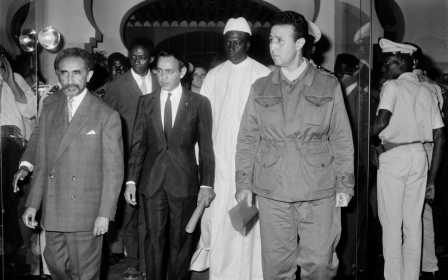Algeria reimposes visas on Moroccans, accusing Rabat of 'Zionist espionage'
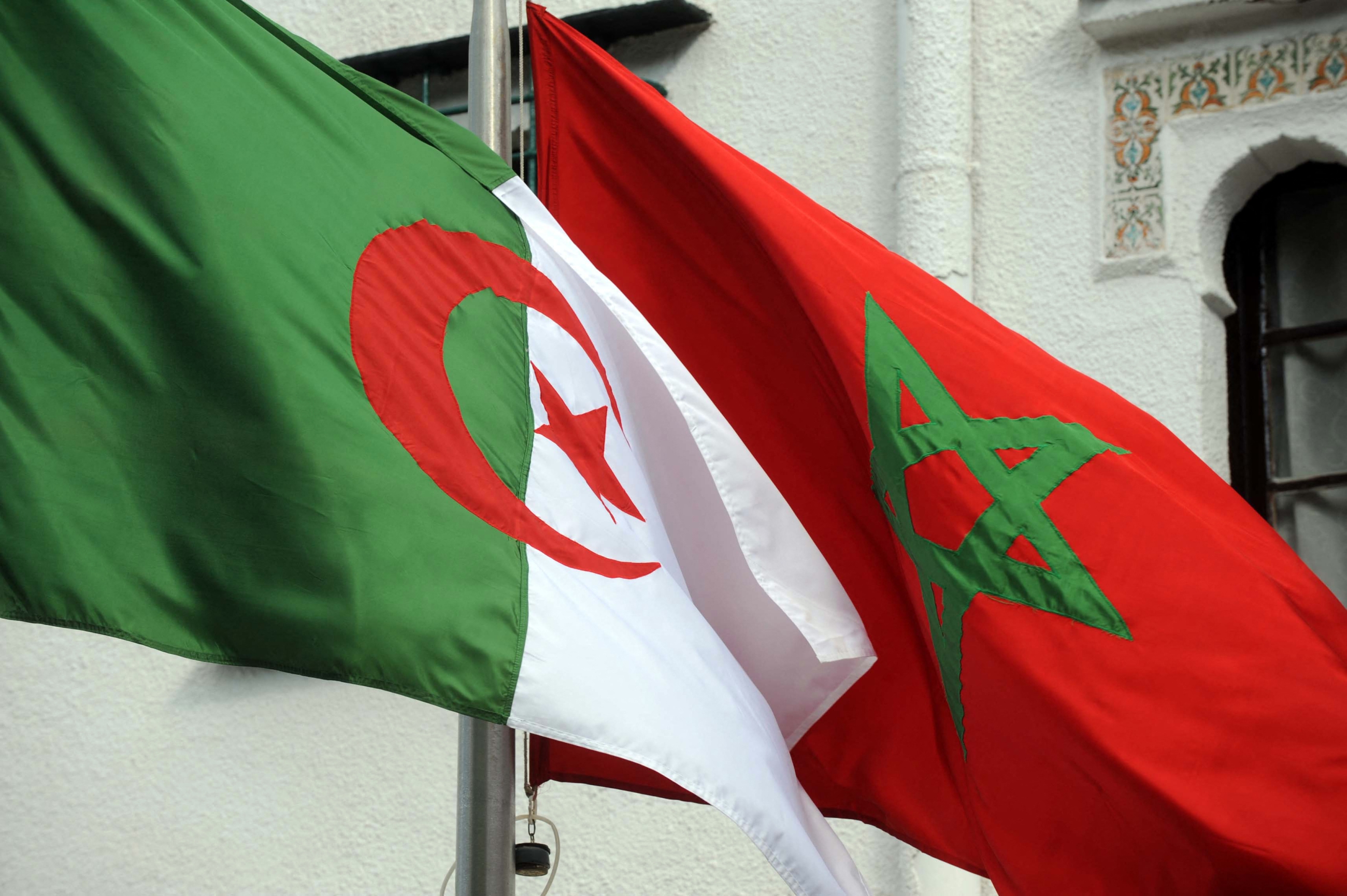
Algeria announced on Thursday it will reestablish visa requirements for Moroccan nationals effective immediately, accusing its North African neighbour of deploying "Zionist intelligence agents".
In a statement, the Algerian foreign ministry accused Morocco of taking advantage of the visa exemption arrangement to "engage in various actions detrimental to the stability of Algeria and its national security".
The ministry cited: "The large-scale organisation of organised crime networks, drug and human trafficking, smuggling, illegal immigration and acts of espionage, as well as the deployment of Zionist intelligence agents, holders of Moroccan passports, to freely access the national territory."
"These acts constitute a direct threat to the national security of our country and impose firm and strict control of all points of access and stay in the national territory," the statement added.
Algiers' decision comes after several people, including four Moroccans, were arrested in the city of Tlemcen, in western Algeria, early in September over accusations of being part of "a spy network" aimed at "undermining Algerian security and administrative institutions".
New MEE newsletter: Jerusalem Dispatch
Sign up to get the latest insights and analysis on Israel-Palestine, alongside Turkey Unpacked and other MEE newsletters
"Always driven by values of solidarity woven by the human and family ties that unite the two brotherly peoples (…), when deciding to sever diplomatic relations with this country in August 2021, [Algeria] had avoided calling into question the freedom and fluidity of the movement of people," the foreign ministry said on Thursday.
The decision puts an end to nearly two decades of free movement between the two countries, even though the borders have been closed since 1994.
For Algiers, "the kingdom of Morocco is held solely responsible for the current process of deterioration of bilateral relations through its hostile actions towards Algeria".
'A logical continuation'
According to journalist Ali Boukhlef, "this decision is a logical continuation of the deterioration of relations between the two countries for a long time".
'Algeria is bothered by the presence of Israel on its borders. The authorities fear actions of internal destabilisation'
- Ali Boukhlef, journalist
"The unilateral rupture of diplomatic relations by Algeria [in 2021] was going to lead to other decisions," he told Middle East Eye.
In August 2021, Algeria broke off diplomatic relations with Morocco, accusing its neighbour of "hostile acts".
Notably, it is alleged that Rabat was linked to the deadly fires that ravaged its territory, which Algerian authorities blamed on the Movement for the Self-Determination of Kabylia (MAK), an independence organisation in the northern Amazigh-speaking region that they classify as terrorist.
At the time, the head of Algerian diplomacy also accused Morocco of spying on Algerian officials with the Israeli Pegasus software and failing in its bilateral obligations, including in regards to the Western Sahara, where Algiers supports the Polisario Front, an independence movement.
Morocco had deemed the decision to sever ties "completely unjustified", rejecting "the fallacious, even absurd, pretexts that underlie it".
Subsequently, Algiers terminated the contract for the supply of natural gas to Morocco through the Maghreb-Europe gas pipeline and closed the airspace to Moroccan planes.
"In addition to the traditional disputes that exist between the two states, whereby Algeria accuses Morocco of using the common borders to smuggle drugs, engage in smuggling and illegal emigration, Algeria is bothered by the presence of Israel on its borders. The authorities fear actions of internal destabilisation. Hence this extreme reaction," Boukhlef told MEE.
In 2020, when the normalisation of relations between Morocco and Israel was announced in exchange for Washington's recognition of Rabat's sovereignty over Western Sahara, Algiers denounced the "arrival of the Zionist entity at [its] doorstep" and "foreign operations aimed at destabilising Algeria".
The resumption of visa requirements by Algiers sparked numerous reactions in the press and social media of both countries.
The Moroccan website Le 360 described the decision as "puerile acts that exude gratuitous hatred and aggression" and wondered whether "the Kingdom [will] impose visas on Algerian citizens in reciprocity or express contempt for Algiers' gesticulations".
The Algerian website TSA meanwhile wrote that the imposition of visas on Moroccan nationals will be "painful" because "it is occurring during a very difficult economic and social situation for Morocco".
The media cited as an illustration the so-called "attempted great escape" of Moroccan youth to the enclave of Ceuta on 15 September, when thousands of people tried to cross the border after a campaign on social media called for mass entry into the Spanish territory.
Decades of tensions
The relations between the two North African countries have long been strained, mainly because of the disputed territory of Western Sahara, normalisation with Israel and alleged Moroccan support for the MAK.
Western Sahara, located on the Atlantic coast and bordered by Morocco, Mauritania, and Algeria, is considered a "non-self-governing territory" by the UN in the absence of a definitive settlement.
With its rich mineral subsoil and its fishing coasts, it is the only territory on the African continent whose post-colonial status remains unresolved.
Rabat, which controls nearly 80 percent of Western Sahara, is proposing an autonomy plan under its sovereignty, while the Polisario Front, supported by Algeria, is demanding a self-determination referendum, planned by the UN when a ceasefire was signed in 1991, but never materialised.
While tensions began in the 1960s, the first country to break off relations was Morocco in 1976 to protest Algiers' recognition of the Sahrawi Arab Democratic Republic established by the Polisario Front.
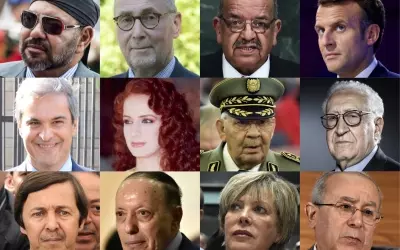
Morocco then introduced an entry visa for Algerians, following the attack on a hotel in Marrakech that killed two Spanish tourists in 1994. Rabat accused the Algerian services of being behind the attack and Algeria closed its border.
It was not until the death of king Hassan II in 1999, whose funeral was attended by the Algerian head of state, that a relative thaw in relations started. During that period, Morocco lifted the visa requirement for Algerians in 2004, and Algeria did the same a year later.
But relations never returned to complete normality and the normalisation between Morocco and Israel in December 2020 started a new phase of enmity.
During the summer 2021, international media revealed the involvement of Moroccan services in a vast operation to spy on foreign personalities, particularly Algerians, using the Israeli spyware Pegasus.
In August that year, then Israeli Foreign Minister Yair Lapid visited Rabat, where he discussed with his Moroccan counterpart Nasser Bourita "worries about the role played by Algeria in the region".
A month earlier, Morocco's representative to the UN, Omar Hilale, declared that the Kabyle people in Algeria deserved "more than any other to fully enjoy their right to self-determination". It was the first time that a Moroccan diplomat officially expresses a position of support for the separatist movement of Kabylia.
Algeria's decision to severe relations with its neighbour at the time was nonetheless limited to diplomatic ties, sparing consular services, economic exchanges and the free movement of people.
According to estimates, Moroccans represent the largest Maghreb community settled in Algeria, with around 45,000 people.
Middle East Eye delivers independent and unrivalled coverage and analysis of the Middle East, North Africa and beyond. To learn more about republishing this content and the associated fees, please fill out this form. More about MEE can be found here.


